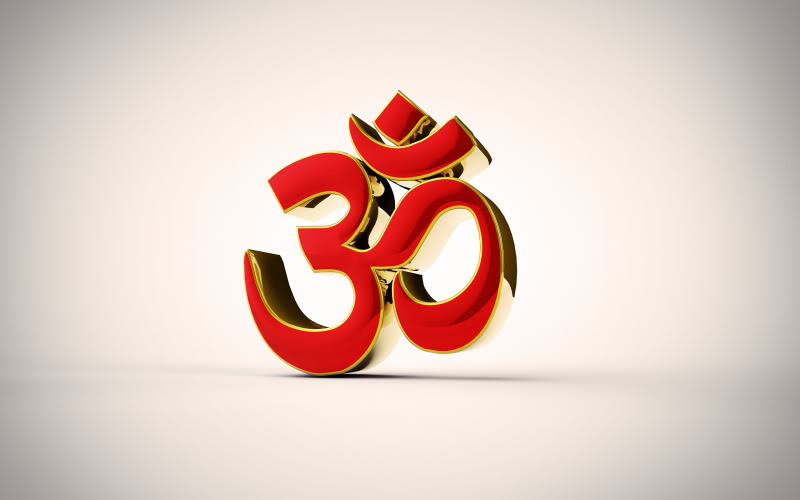Who is a Master? (Part III)
While exploring the truth of the subject, who is a Master, we analysed the meaning of the word Srotria, which is one of the two words of the mantra ‘pariksya lokan …’, in the previous two lectures. We shall now discuss the next important word, Brahmanistha. We had already seen the need for relying on the Mantra for appreciating ‘Who is a Master?’. The one who has studied the scripture in a traditional way from a traditional Master no doubt has the key through which he could open the kingdom of the Self that is painted in words in the scriptures. However, the teaching or unfolding makes a difference when the person who reveals the truth remains non-distinct from the truth that he is unfolding.
When a student is listening to such a Master, the truth that he is unfolding sinks straight in without any distortion whatsoever. However, if the one who unfolds retains an identity distinct from the teaching, then the student who is listening to the teaching has to imagine or presume what the truth would be like. Hence, tradition lays great importance on this word- Brahmanistha. We know the meaning of the word Brahma, which is limitless – that which is free from all forms of limitations. Nistha the word is derived from the root, stha, with the meaning ‘to remain’. The prefix ‘ni’ is used in the sense of always. So, Nistha means to always remain, ever abide, being grounded or resting in/on Brahman.
One has to understand these words properly, else it could lead one away from the path. When we take the word Nistha in an experiential sense, one is bound to understand that a Brahmanistha is one who is not an active contributing member of the society and that such people’s existence is a mere waste. Some could also advance the theory that they are parasites upon the society. This is one erroneous conclusion that one could arrive at. The other is that for one to be a Brahmanistha, one should reach a state where one is not conscious of the world, for one would be rooted or grounded in Brahman. For a student of Brahma Vidya this understanding could throw him out of gear as now study is not important but an act through which one abides or remains.
Well dear friends, when we are speaking about limitless, we should understand that it is not something that can ever be tied or connected to action. Therefore, the words grounded or rooted have to be seen in a different light. What is to be rooted or grounded should be the first question? Definitely it is not the body or anything else, for whether we like it or not ‘choicelessly’ they are in Brahman – the limitless. If we say that we are talking about emotions being in Brahman – limitless, I would ask you the question as to how do we first know whether they are in or out of Brahman. Further, even if they are in it, what difference does it make to you? It would be something like saying my winter-coat is in Brahman; what difference does it make to you? Neither the emotions nor the seat of emotions are the cause of concern. The cause for concern is while interacting in the world, somewhere the thinking faculty or faculty of choice takes one for a ride and puts the cart before the horse, whereby things that are incidental are blown out of proportion and seen as non-incidental. Added to this, one mistakes oneself that is non-incidental for an incidental thing. This mix-up triggers pressure of the form of going on the defensive and trying to protect oneself, and towards the end, there is sorrow because of conclusions regarding oneself.
We had seen the truth that the problem is because of ignorance, to remove which we sought the teaching and the Master. The whole pursuit of knowledge is only for the thinking faculty and it is this that should rest or abide in Brahman. Today the thinking faculty – mind, is trying to abide in objects but cannot gain an abidance there for everything can find an abidance only in itself not in things. The mind moves towards objects only for a definite reason, which is incidental, though it spins and projects about happiness or security being in them. Ultimately the thinking faculty would only be dreaming or projecting but never abiding, for happiness or security is never in the objects. The thinking faculty could gain an abidance in happiness or security only when it knows happiness as Brahman – limitless. (This is because limitless exists in all places and time, therefore never moving or drifting away.) With the disturbance in the vision, the thinking faculty gets or becomes disturbed. When the knowledge about Brahman is free from doubts, vagueness and errors, no more could the thinking faculty become disturbed, which the tradition calls as abiding, grounding, remaining in happiness or itself, which is Brahman.
We can put it in another way too. When one studies the scriptures, the mind appreciates Brahman, but the vision that one has about Brahman is something that becomes easily shaken on the slightest pretext. This is because of the presence of traces of ignorance. So, abidance of the thinking faculty in Brahman, means, the thinking faculty is completely free from ignorance.
A mind that has this crystal-clear vision of Brahman, sees Brahman as not being distinct from the self, hence revealing the truth to the student as it is, directly and making the student appreciate that Brahman as a self evident fact, not something that is either an immediate or distant possibility. Just as one cannot miss a football which is in one’s hand, so too, when such a Master unfolds the truth, the student can never miss it. This is because of the clarity and definiteness of the unfoldment.

